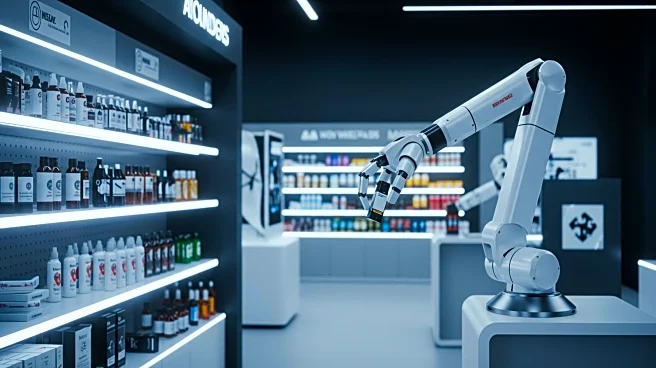What's Happening?
Retailers are facing a challenging economic environment characterized by decreased consumer confidence and a weakening job market. Despite growth through new-store construction and expansion into new markets, same-store sales have declined. Retail leaders express concerns over tariffs and deportations, which they believe are impacting the labor pool and sales in Hispanic markets. In response, many are considering artificial intelligence (AI) as a tool to optimize operations and enhance revenue. AI applications such as inventory optimization, loss prevention, personalized marketing, and dynamic pricing are being explored to reduce costs and improve profitability.
Why It's Important?
The exploration of AI solutions by retailers is significant as it represents a strategic shift to address economic challenges. AI can potentially streamline operations, reduce costs, and create new revenue opportunities, which are crucial for survival in a competitive market. The impact of tariffs and deportations on the labor pool and sales highlights the broader economic and social implications of current policies. Retailers stand to benefit from AI by improving efficiency and customer engagement, while the broader economy may see shifts in employment and consumer behavior as these technologies are adopted.
What's Next?
Retailers may continue to implement AI solutions to address operational challenges and enhance profitability. The success of these initiatives could lead to wider adoption across the industry. Stakeholders, including policymakers, may need to consider the implications of tariffs and deportations on the economy and labor market. As AI becomes more integrated into retail operations, there may be increased discussions around ethical considerations and the impact on employment.
Beyond the Headlines
The adoption of AI in retail could lead to long-term shifts in how businesses operate and interact with consumers. Ethical considerations around data privacy and surveillance may arise as AI technologies become more prevalent. Additionally, the impact on employment, particularly in roles susceptible to automation, could lead to broader societal changes. The balance between technological advancement and human employment will be a critical area of focus.










